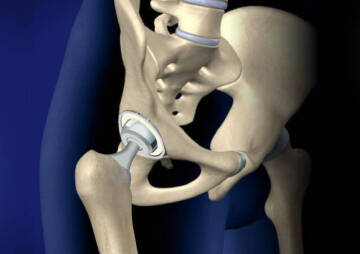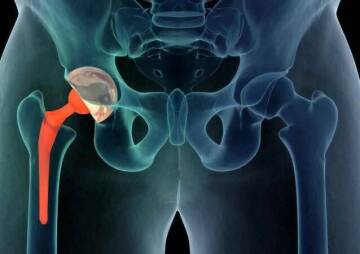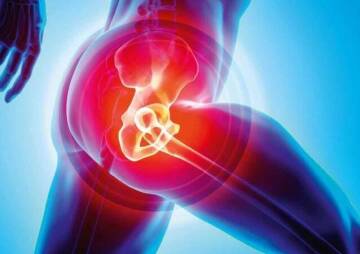-
Category
Craniomaxillofacial Surgery
Orthopedic Surgery
Spine Surgery
Orthopedic Implants
Hip Surgery
Knee Surgery
Pectus Excavatum
Bone Graft
Disinfectants
Healthcare
How Long Does Hip Replacement Last?

Doctors have estimated the average life span of a hip replacement to be approximately 10-15 years, but you should know more about complications. read whole this article.
Are you a hip replacement surgery candidate and wondering about the pre-and post-operative actions? Or have you undergone this surgery, and are you worried about the longevity of the prosthesis or your recovery period? These concerns are normal among patients because they will undergo one of the most common and challenging types of joint replacement surgery. According to statistics, approximately 300,000 hip replacement surgeries or hip arthroplasties are performed each year in the USA, so this number indicates the prevalence of this surgery. One of the most frequently asked questions by patients is, how long does a hip replacement last? They need to know the answer to this question because resuming normal life and doing their daily chores depends on this surgery. Do you have any ideas about how long hip replacements last? 10 years? 20 years? Or permanently? If you want a definitive answer, read the rest of the article.
A Brief Overview Of Hip Replacement
.jpg)
What is hip replacement surgery? And when do you need a hip operation? Hip replacement surgery or hip arthroplasty is a surgical operation in which the surgeon replaces your damaged hip joint with an artificial joint. So you may be wondering what causes joint damage? Joints in various parts of the body allow you to move your limbs in different directions easily. Joints are bones that are fastened together and have a layer of cartilage between them to prevent the bones from rubbing against each other. Therefore, any damage to this cartilage layer causes the joints to wear out. When it comes to the hip joint, it is a ball-and-socket joint and is as vulnerable as the knee joint. Some of the common causes of hip joint damage include:
- Osteoarthritis: This is the most common type of arthritis that damages joints and causes pain and stiffness over time. The exact cause of osteoarthritis is unknown, but some of the reasons that trigger this condition include aging, joint injury, family history, being a woman, and obesity.
- Hip fractures: This condition is mainly caused by a bad fall and some accidents, especially in the elderly 80 years and older. Hip fractures are breaks or cracks near the hip joint in the top of the femur. Therefore, hip fractures cause damage to the hip joint that may require a hip replacement.
- Rheumatoid arthritis: This condition is an autoimmune disease in which the body's immune system mistakenly attacks its own cells, particularly joint and bone cells. Rheumatoid arthritis is a long-term condition and causes pain, stiffness, and swelling in the hip joint after a while.
- Septic arthritis is a dangerous joint infection caused by the entry of certain germs into the joints through ways such as dog bites, bad cuts, and surgical complications. This condition must be treated immediately, and hip replacement may be the best option in an urgent situation.
These are common causes of hip joint damage and can interfere with people's daily life and routine activities. However, normal aging and wear and tear of the joints and car accidents that push the hip are other common factors of hip joint damage.
Signs of Worn Hip Joints
Patients with hip joint damage always complain of severe pain even at rest and joint stiffness. Sometimes people do not pay enough attention to these conditions and insist on doing some harmful and strenuous activities. The severity of pain and joint damage can worsen in these situations, making it difficult to tolerate. Generally, worn hip joints that require hip replacement have the following signs:
- Severe pain and swelling that reduces your mobility and makes it difficult for you;
- Inability to perform daily tasks such as shopping, bathing, sleeping, sitting, and getting up;
- Severe pain in your hip that interferes with your personal and social life;
- Poor quality of life or feeling depressed due to lack of mobility or severe pain;
- Feeling unbearable pain in your hip even while sleeping or resting.
These indicate that your hip joint is wearing out and you need appropriate treatment. First, doctors try treatments such as exercise, physical therapy, medication, and corticosteroid injections, and the last option is hip replacement surgery. Do you know how many hip replacements can you have in case of surgical treatment? Surgeons perform three types of hip replacements, depending on the degree and position of the damaged area; Total hip replacement, partial hip replacement, and hip resurfacing. You can ask about their differences; To be clear, surgeons perform total hip arthroplasty in patients whose hip joints are entirely worn. Only a part of the hip joint is replaced in the partial hip arthroplasty, and the joint socket remains intact. Hip resurfacing typically involves replacing artificial cartilage rather than removing some portion of the joint. How long does a hip replacement last, and which type is right for you? These are questions that your doctor can answer with full knowledge of the type of joint damage you have.
How Long Hip Replacement Last?
This is one of the most sought-after questions, and the answer is essential for patients as well as for physicians. Patients undergoing hip arthroplasty, regardless of the type of replacement, must keep in mind that the prosthesis is not permanent. These artificial joints will alleviate your pain and improve your quality of life, but they will not work as a healthy joint for you. After the surgery, you can resume your normal activities and do some gentle exercise. Mountaineering, jumping, and running, on the other hand, will shorten the life of your prosthesis. Doctors have estimated the average life span of a hip replacement to be approximately 10-15 years. Of course, depending on the type of hip implant and the level of patient care, this period will vary.
How Long Does Titanium Hip Replacement Last?
Why do you think this question has been searched so much by users? Since hip implants are made from various materials and titanium was one of the main metals in the manufacture of prostheses. You may have seen these implants under the name Metal-on-Metal (MoM) hip replacement and were widely used a few years ago. However, doctors recently confirmed that titanium-based implants were worn earlier than expected and that traces of metal leakage into the blood were discovered. And these factors have led manufacturers to remove metal from the manufacturing cycle of hip replacements, so these implants are no longer available in the US market today. Today, doctors use the latest type of implant called Ceramic-On-Ceramic (CoC). According to statistics, more than 90% of patients are satisfied with it and are long-lasting compared to other types of prostheses.
Hip Replacement Complications
.jpg)
As mentioned in the previous article, Find Out More About The Various Types Of Hip Replacement, hip replacement is one of the most common types of joint replacement, and patients do not experience serious complications after surgery. Especially those with ceramic implants report painless movement, a shorter recovery period, and a wider range of mobility. Also, if you choose your doctor carefully, you can be sure that you will have an easy and risk-free surgery. However, hip arthroplasty, like other surgeries, can have complications, the most common of which are:
- Infection
- Blood clots or DVT (deep vein thrombosis)
- Prosthetic dislocation
- Nerve damage
- Fractures
- Differences in leg length
- Loosening
Why is my hip replacement hurting? You, too, may have this problem and look for the answer. There may be different reasons, but prosthesis dislocation, fractures and loosening are among the most likely causes. These complications can occur during surgery and several months after surgery and can cause severe pain in the area of the new joint. So what's the solution? Second or revision hip replacement is a possible and practical solution to solve this problem.
What Are The Signs Of Needing A Second Hip Replacement?
If you had a hip replacement ten years ago, you should consider hip second surgery as the pain may come back and increase over time as the joint wears out. Additionally, if you have had a hip replacement for several months but still have pain and cannot move easily, this is a sign of a problem. This probably means that your prosthetic joint is not well fixed or parts of it are broken. In this case, the surgeon may need to perform a second hip replacement to fix the problem.
Well, now, besides getting the answer to your question about the longevity of hip replacements, you also have a lot of information about this surgery. Now you know that you have to be more careful with your prosthetic joint so that you can use it for up to twenty years without the need for second joint replacement surgery. Twenty years! Isn't that great? What do you think patients should do to be able to use an artificial joint for a long time?
Reference: nhs.uk



